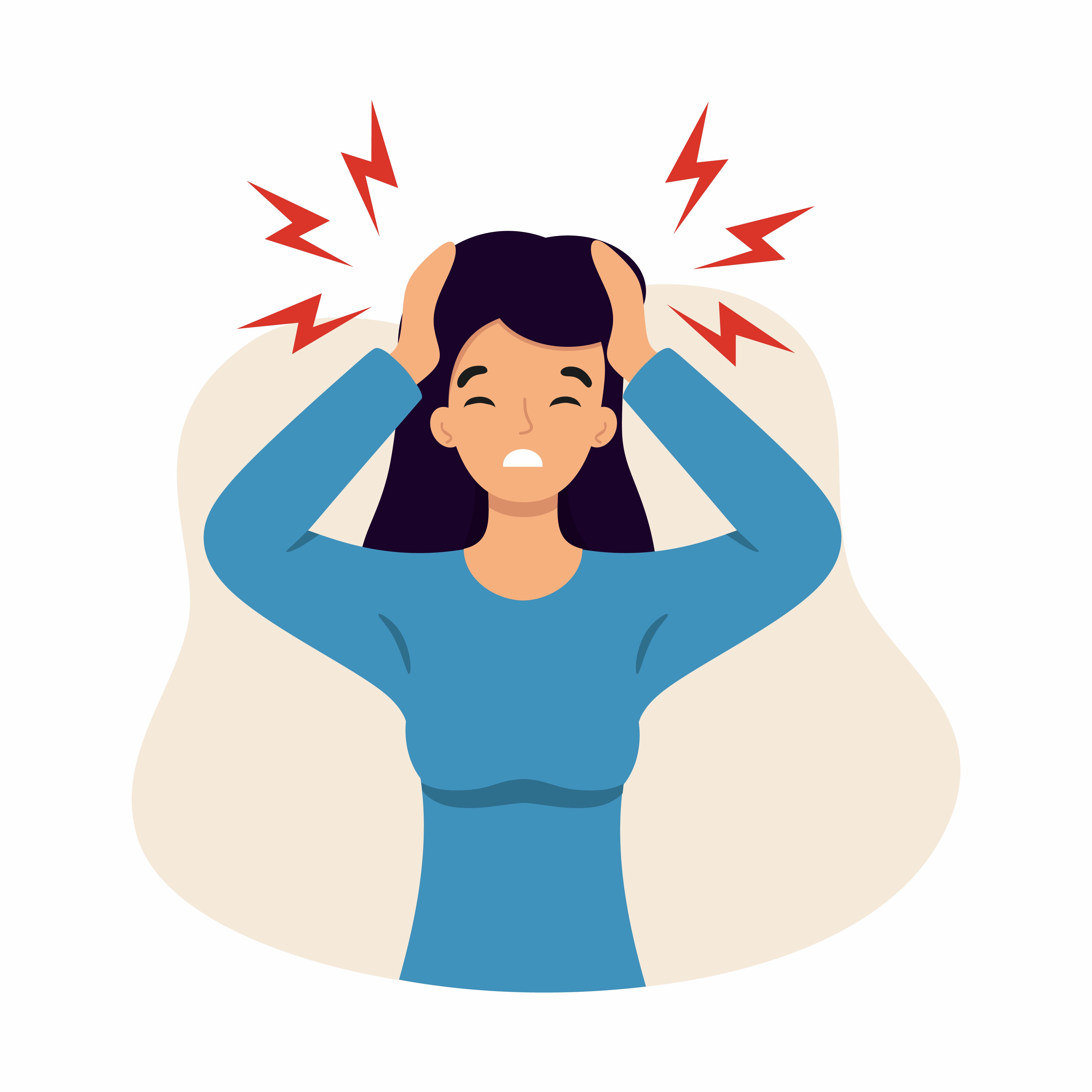
Headaches are a common struggle.
There are many types of headaches, each with a different cause and set of symptoms. The two most commonly experienced varieties are:
- Tension-type Headache: aching or pressure, as if squeezed by a vice or tight band, accounts for 60-80% of headaches.
- Migraines: recurrent throbbing or pulsing, moderate to severe, often accompanied by nausea and light, sound, or smell sensitivity, and sometimes perceive a “visual aura” of zigzag lines or other sensory disturbances, around 15% of head pain cases.
These head pains can usually be managed with ibuprofen or acetaminophen. Avoid exceeding the recommended dosages, as this may make your problems worse.
There may also be non-pharmaceutical treatment options and lifestyle changes that can help you relieve your head pains.
Diet and Hydration
As simple as it sounds, drinking more water can help with your headaches. Dehydration can cause and exacerbate headache disorders.
Limit or avoid alcohol, which can increase dehydration and cause other stressful symptoms. Mixing alcohol with headache medications is especially dangerous to your health.
Caffeine over-consumption or withdrawal may be contributing to your headaches, so limiting caffeinated beverages like soda, coffee, and tea might help.
There also appears to be a connection between headaches and diet. Pay attention to what foods trigger your symptoms. Experiencing a headache with certain foods can be an allergy or sensitivity.
Restricting carbohydrates through a ketogenic diet or a low-glycemic diet looks to be an effective strategy. These diets can have neuroprotective and anti-inflammatory effects.
Relax and De-Stress
Stress and tension may be worsening your headache symptoms.
Physical and relaxation training can be effective interventions for reducing the intensity and frequency of migraines and headaches. Examples of this includes exercise, acupuncture, and progressive muscle relaxation.
Mindfulness meditation can help reduce stress and promote relaxation, a promising treatment option.
Getting higher quality sleep may also benefit your headaches.
Therapy and counseling can help you address and manage anxiety, depression, or other stressful emotions that may be aggravating your headaches.
Expectancy and Confidence
An intriguing body of evidence is growing around the role of our expectation that a course of treatment will help.
When headache and migraine patients expect medicine to work, they experience more significant pain relief and a higher likelihood of a favorable clinical outcome, even when given a placebo that doesn’t do anything – and even when patients know they are taking a placebo.
The belief and confidence that a treatment strategy will work can reduce headache intensity and frequency.
This suggests that our expectations about how well we will cope with the Headache can have a powerful impact on our experience.
When we feel prepared and capable of dealing with a headache episode, we have a greater chance of managing it without becoming overwhelmed. This self-efficacy can even prevent migraines from occurring as often.






















